Parties to Vienna talks can reach good agreement in shortest time if there is serious will: Iran
Iran’s Foreign Minister Hossein Amir-Abdollahian says it is possible for negotiating parties in the Austrian capital to reach a good agreement in the shortest possible time if there is serious will on all sides.
Speaking in a televised interview whose text was published on Sunday, Iran’s top diplomat said, “If there is serious will, we will be able to reach a good agreement in the shortest time, and as of today, we believe that negotiations are positive and moving forward.”
Iran and the P4+1 group of countries – Britain, France, Germany, Russia and China – resumed talks in Vienna on January 3 after the parties took a three-day break for the New Year. The US is not allowed to directly attend the talks due to its pullout in 2018 from the landmark deal with Iran.
The eighth round of the Vienna talks began on December 27 with a focus on the removal of all sanctions that the United States imposed on Iran following its unilateral withdrawal from the historic deal officially known as the Joint Comprehensive Plan of Action (JCPOA) three years after its conclusion.
During the previous round of the talks, the first under Iran’s new President Ebrahim Raeisi, Iran presented new proposals at the negotiating table to help the talks move forward and later criticized the European signatories for failing to follow suit and remaining passive.
Elsewhere in his interview, Iran’s foreign minister said, “Our proposals are transparent and clearly on the table. Our opposite sides, especially the Western parties, must show goodwill.”
Amir-Abdollahian stated that during the ongoing round of talks on the revival of the 2015 deal, Americans sought a host of concessions from Iran in return for giving one simple concession.
“The negotiations [in Vienna] are not easy, but the initiatives taken by the Iranian side ... have put us on the right track. We are close to a good agreement. Whether we would be able to clinch this good agreement in the short term depends on the opposite side... If all parties returned to their obligations under the JCPOA – especially the United States, which withdrew from the JCPOA and violated it, and three European signatories that followed suit with the US – then we would certainly return to [full compliance with] the JCPOA,” Iran’s foreign minister said.
He expressed hope that a good agreement would be reached by the Vienna talks participants in the shortest possible time, emphasizing that Iran does not seek protracted talks.
"We are not willing to give 10 concessions and get one ... If there is serious determination, it is possible to reach a good agreement in the shortest time," Amir-Abdollahian said.
Iran’s foreign minister added that the Iranian economic team, which is present at the Vienna talks, is tasked with working to neutralize the sanctions imposed on the country, adding, "This means that we are not going to wait for the [outcome of] Vienna talks for years."
President Raeisi has also emphasized that the economic team should not wait for the results coming out of Vienna and that should not tie the country's economy to the negotiations, the foreign minister said.
On Sunday, Iran's lead negotiator to the Vienna talks Ali Bagheri Kani and Enrique Mora, the European Union’s deputy foreign policy chief and head of the JCPOA Joint Commission, as well as representatives of the three European signatories (E3) to the 2015 nuclear deal held a meeting.
The meeting came after Bagheri Kani told reporters on Saturday after meetings with representatives of the P4+1 group of countries that the sides are resolving the outstanding issues and narrowing down the differences.
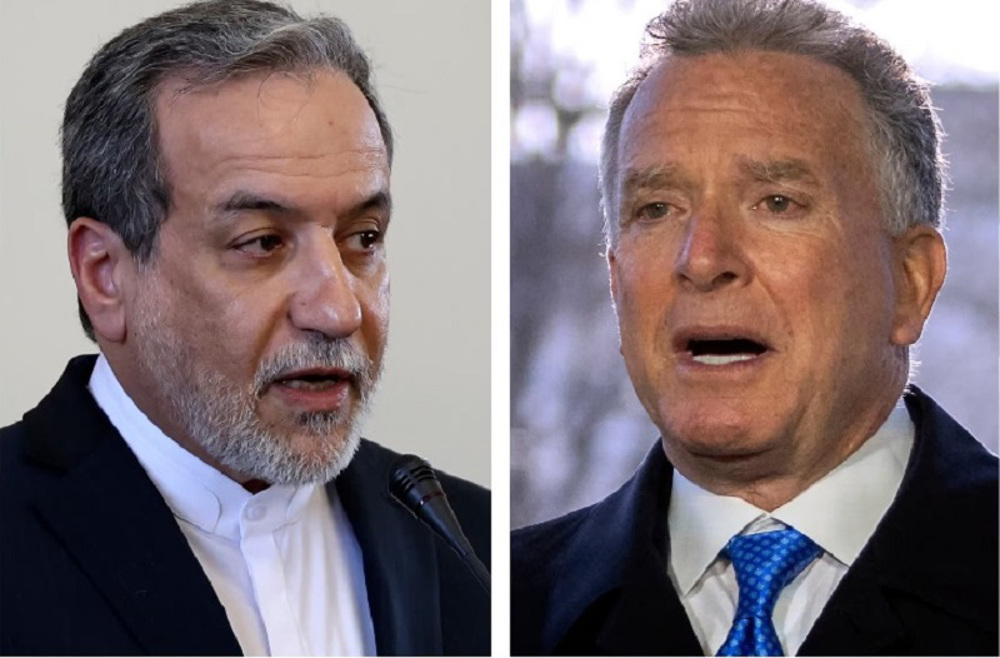
Indirect Iran-US talks proceed on 'constructive' note
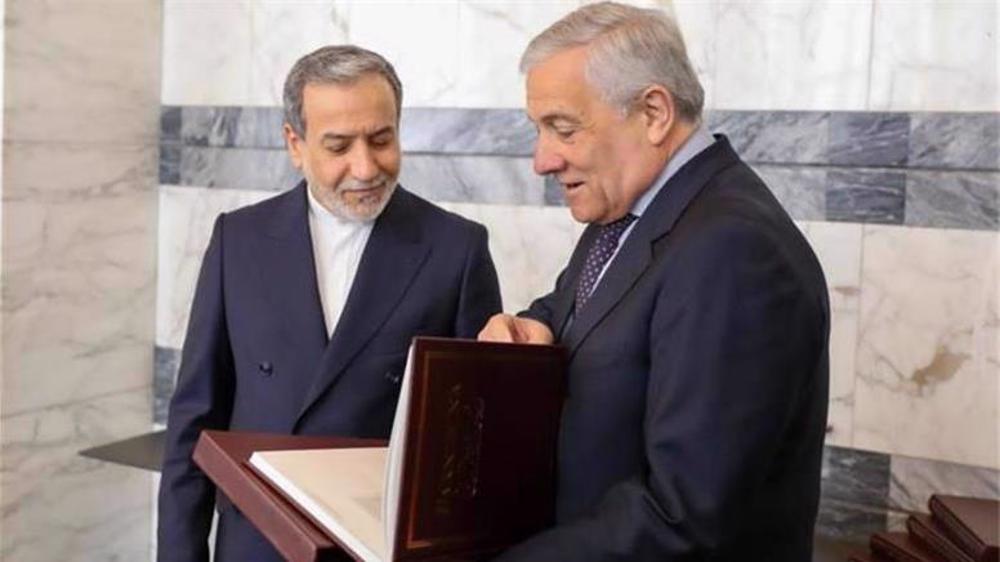
‘Rome talks made progress on principles of ‘likely deal’; optimism warranted but with great caution’
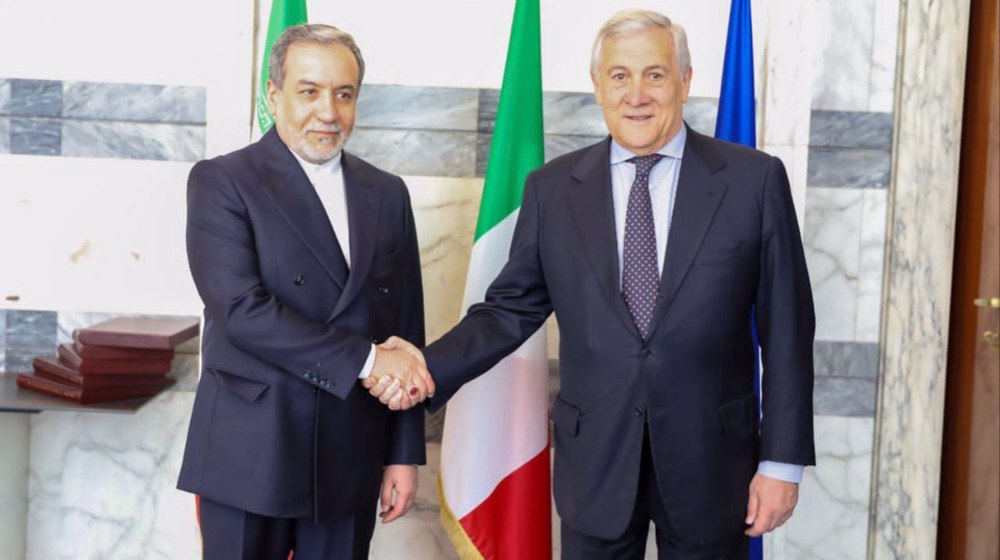
Israel is the sole obstacle to nuke-free West Asia: Iran FM
Pope Francis dies aged 88: Vatican
VIDEO | Is US power waning?
2025 World Press Photo: 9-year-old Palestinian amputee symbolizes Gaza's tragedy
Araghchi holds talks with counterparts as more countries support indirect Iran-US talks
Palestinian prisoner dies in Israeli jail due to deliberate medical negligence
China ‘firmly’ opposes countries making trade agreements with US at its expense
Israel 'hell-bent' on decimating Gaza’s health system: Hospital director
VIDEO | Demonstration called against military cargo ship arrival at Algeciras Port


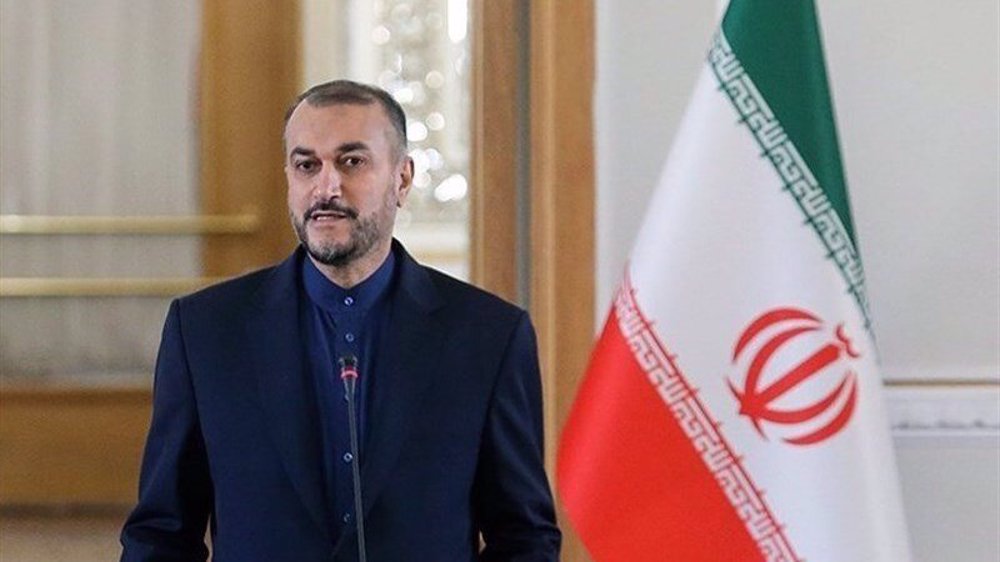
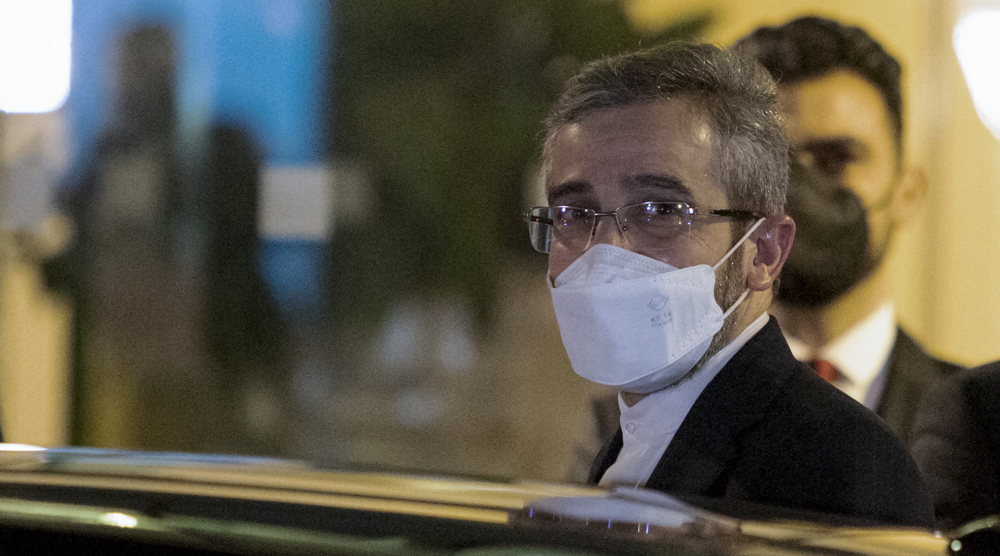
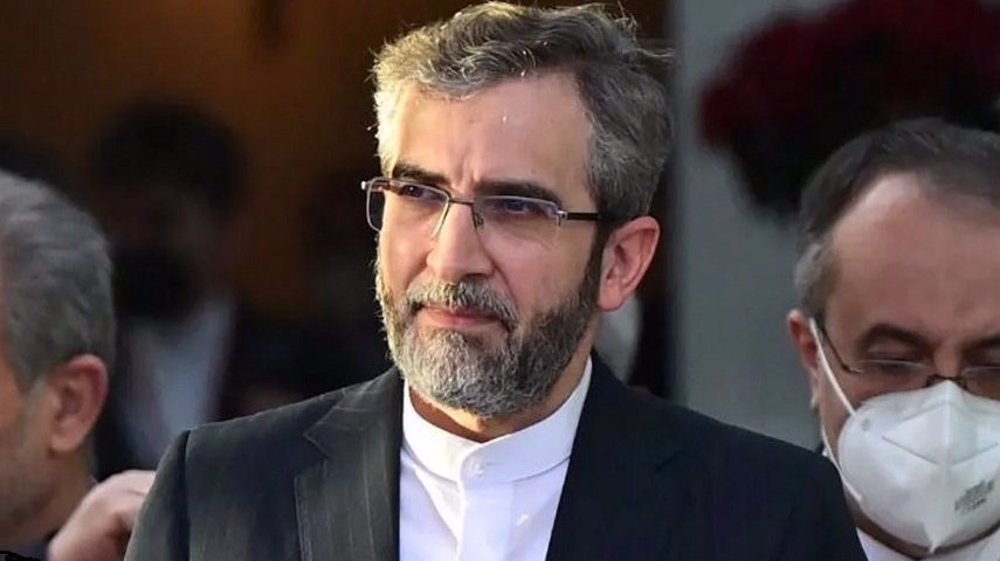




 This makes it easy to access the Press TV website
This makes it easy to access the Press TV website